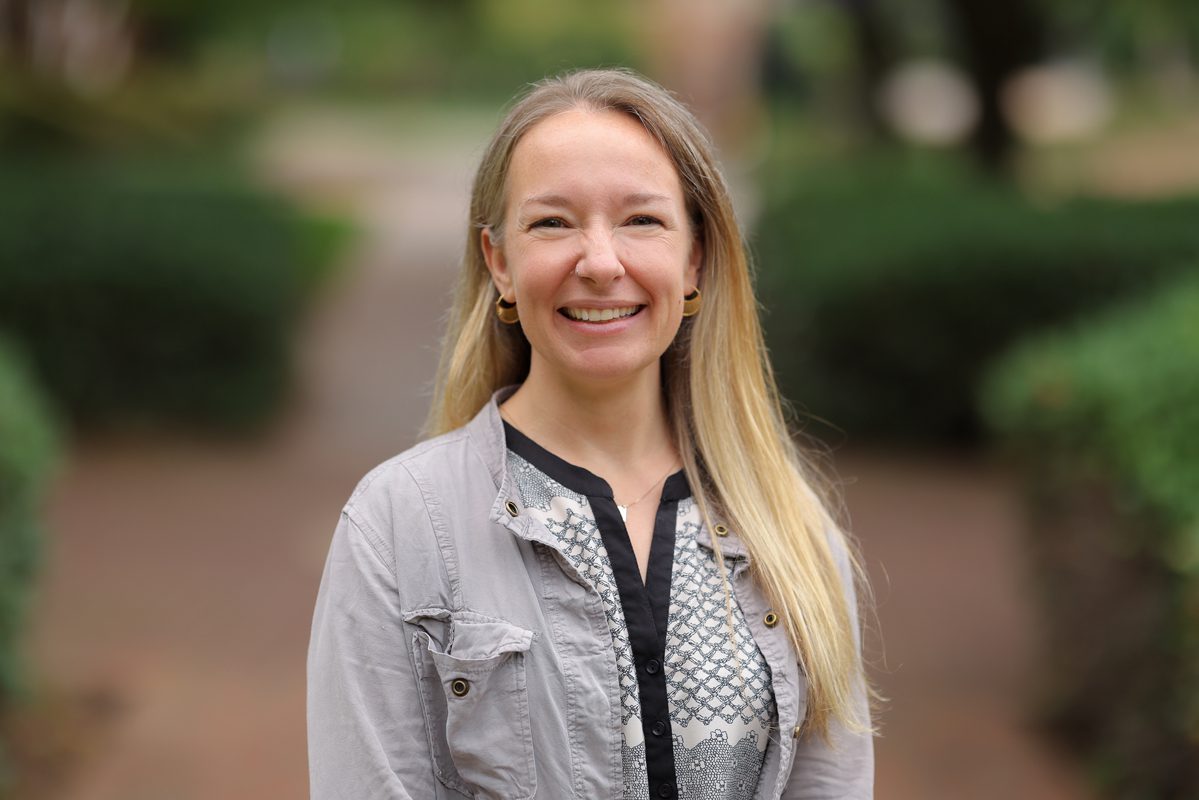
Erin Hahn
Professor, Department Chair of Psychology
- Email: erin.hahn@furman.edu
- Phone: 864.294.3210
- Office: JH 206-I
Dr. Hahn first became interested in psychology when she took an Introductory Psychology course as a first-year college student. She started doing undergraduate research the following year and then never stopped. She earned her Ph.D. at Carnegie Mellon University focusing on early cognitive development, including word learning and conceptual development.
She joined Furman’s Psychology Department in 2005. Her research explores the developmental underpinnings of environmentalism. She is especially interested in the ways in which children are naturally inclined to be good stewards of the environment. Her current work focuses on children’s views of animals as sources of food.
Dr. Hahn is committed to contributing to the high quality, liberal arts education that Furman offers. She is passionate about teaching and has taught on a number of study-away programs, including ones with travel to southern Africa, India, and Denmark. She also oversees the Furman-SC LEND undergraduate pipeline, a program that offers students the opportunity to learn about developmental disabilities while also exploring a wide variety of career options. She was the recipient of the Alester G. Furman, Jr. and Janie Earle Furman Award for Meritorious Advising in 2018.
Education
- Ph.D., Carnegie Mellon University
- M.S., Carnegie Mellon University
- B.S., Carnegie Mellon University
Research
Broadly, I am interested in understanding how children learn about the objects in their environment. Coming from a background in language development, some of my research questions focus on early word learning, including why children don’t say the words they understand. I am also very interested in how children learn the actions associated with objects. How, for example, do children learn that crayons are for coloring and forks are for eating? Some of my research bridges these two domains by comparing the processes that are involved in word learning and action learning. I approach my research from the perspective that early learning operates using powerful, all-purpose processes.
Publications
Hahn, E. R., Gillogly, M., & Bradford, B.E. (2021). Children are unsuspecting meat eaters: An opportunity to address climate change. Journal of Environmental Psychology, 78, 101705.;
Hahn, E. R. (2021). The developmental roots of environmental stewardship: Childhood and the climate change crisis, Current Opinion in Psychology, 42, 19-24.;
Hahn, E. R., & Garrett, M. K. (2017). Preschoolers’ moral judgments of environmental harm and the influence of perspective taking. Journal of Environmental Psychology, 53, 11-19.;
Hunley, S. B., & Hahn, E. R. (2016). Labels affect preschoolers' tool-based scale errors. Journal of Experimental Child Psychology, 151, 40-50.;
Tonnsen, B. L., & Hahn, E. R. (2015). Adolescents’ attitudes toward a peer with autism spectrum disorder: Effects of social acceptance and physical inclusion. Focus on Autism and Other Developmental Disabilities.;
Gershkoff-Stowe, L., & Hahn, E. R. (2013). Word comprehension and production asymmetries in children and adults. Journal of Experimental Child Psychology, 114, 489-509.;
Hahn, E. R., & Cantrell, L. (2012) The Shape-Bias in Spanish-Speaking Children and its Relationship to Vocabulary. Journal of Child Language, 39, 443-455.;
Hahn, E. R., & Gershkoff-Stowe, L. (2010). Children and adults learn actions for objects more readily than labels. Language Learning and Development, 6, 1-26.;
Gershkoff-Stowe, L., & Hahn, E. R. (2007). Fast-mapping skills in the developing lexicon. Journal of Speech, Language, and Hearing Research, 50, 682-697.
Undergraduate collaborators are marked by *
0